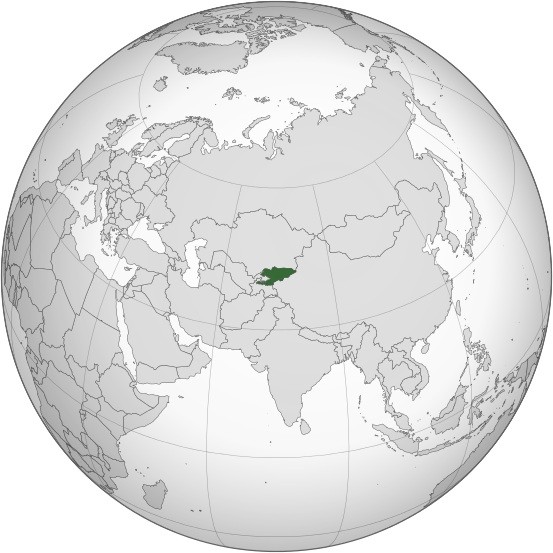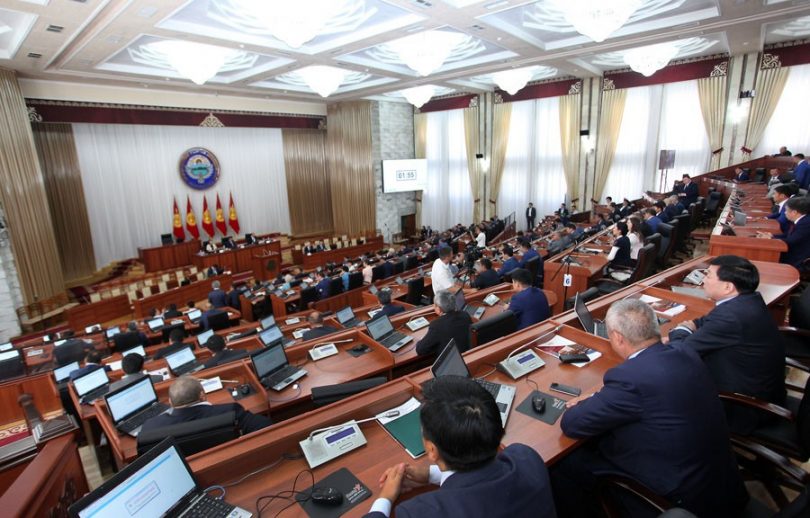BISHKEK (TCA) — White collar crime is a global problem, but there is no such thing as a global solution. Transnational law is powerless and even often abused by criminals rather than helping to bring them to justice. This means that national jurisdictions can only prosecute and try major-scale fraudsters and embezzlers on their territory, while the perpetrators freely move themselves and their bounties in offshore havens. This article is the first part of a series of four articles covering the issue in Central Asian countries.
Alongside corruption and extortion of citizens by state employees, there is so-called inside embezzlement and corporate swindle targeting investors, trading partners and the public at large. While having appearances in common, their methods used tend to vary from country to country. Within this framework, the situation in Kyrgyzstan deserves special attention.
Kyrgyz “occupational” criminals tend to work in groups from an early stage on, in contrast to their Kazakh and Russian peers who start as lonesome cowboys and only start gathering cronies around them once they get organized.
On a higher level, state officials engaging in white collar crime are a regular feature in Kyrgyz news media. A recent case involves former Deputy Minister of Transport and Communication Ernis Mamyrkanov. In summer this year, he awarded an unnamed “individual entrepreneur” with a software delivery and installation contract of close to 1.6 million som, circumventing procedures of tendering and market research. After it came out that the average costs of what he ordered amounts to no more than 300,000 som, prosecutors ordered his arrest on suspicion of a kickback.
Escaping justice is easy
White collar crime became particularly rampant in Kyrgyzstan during the five years under President Kurmanbek Bakiyev and family. Extortion and embezzlement took place in broad daylight, and the mentality gained ground that being defrauded was simply stupid and defrauding clever. It could be seen as a modern version of the notorious baranta, the organised theft and plunder expeditions that took place until under the Russian Empire from the late XIX Century on they were gradually suppressed by the law. But to the feeling of the perpetrators, taking part in such expeditions, often carried out by members of one or more related families, was nothing to be ashamed of but would prove one’s bravery.
But not only Kyrgyz citizens have been attracted by the fertile grounds the Kyrgyz society offers to those eager to snatch a bit of “grey cash” with which the otherwise cash-strapped community is flooded. One example is the Turkish RUMI Group, originally founded by two Turkish business partners named Kadri Kose and Aydın Mıstaçoğlu. The latter owns the landmark Bishkek Park, which includes a shopping centre but behind the face of it stands a number of unfinished towers meant to bring luxury apartments and office space on the market. In May this year, a local company called Plus Investment Group PLC filed a criminal complaint against Mıstaçoğlu, accusing him of funneling the money they had entrusted to him as an investment out of the country instead, according to reports later posted by the Kazan-based periodical Realno Vremya. The case was “settled” between the two parties and Plus Investment got its money back, in a deal reminding one of the notorious American multi-billion “handshakes” in which proper judicial proceedings are simply swept aside. Escaping justice is easy for those who can afford it…
Corporate racketeering
The most notorious white collar crime case in Kyrgyzstan is that of MegaCom, which represents a true kaleidoscope of “occupational” crime’s faces, methods and dimensions. But it is mainly a series of corporate racketeering. Originally known as BiMoCom, the enterprise was established by a Kyrgyz businessman named Baiyzbekov who wanted to participate in the fledgling GSM service market in the country. It all went well, in fact a little too well, because in 2003 President Askar Akayev revoked the firm’s licence to play it in the hands of his son Aidar through the offshore firm Ancroft. After the family’s downfall in 2005, the latter was sold to another offshore firm named Penwell, and 51 per cent ended up in the hands of Russia’s Eventus Holding with Maxim Bakiyev’s offshore firm Forntek Enterprises holding the remaining 49 per cent.
In 2009 BiMoCom went bankrupt, following a chain of false claims and forged accounts. The assets went into the hands for next to nothing of Alfa Telecom, under control of Maxim and his lawyer and associate Alexei Eliseyev through an offshore firm in Belize called Southfield Management. But with the reversal of the Bakiyev regime, the case rippled on until in 2013 Eliseyev was convicted for racketeering and BiMoCom, now operating under the name MegaCom, nationalised. Tens of millions (in dollars) in funds, though, are still missing.
The repeated implication of top state officials in fraud cases makes it difficult to hit the problem by its roots. Asset valuation remains unprofessional in Kyrgyzstan, thereby allowing under- or overvaluation according to what suits swindlers best. Unraveling cases can be dangerous in a generally emotional political climate. Overall, the law is in order but people’s trust in its enforcement is virtually absent. The answer to all that is integrity, but those who cherish that are usually on the losing end where it comes to white collar crime…








